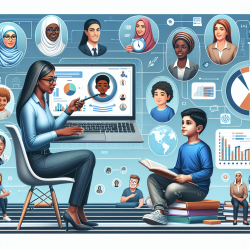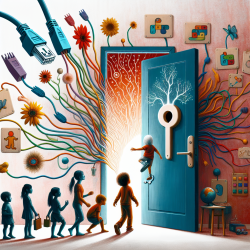The COVID-19 pandemic has brought to light numerous challenges within the educational system, particularly for Black children in early childhood education. A recent study titled “Treat Them Like Human Beings”: Black Children’s Experiences with Racial Microaggressions in Early Childhood Education During COVID-19 provides valuable insights into these challenges. This research highlights the prevalence of racial microaggressions and their impact on Black children's educational experiences during the pandemic.
The Impact of Racial Microaggressions
Racial microaggressions are subtle, often unintentional, forms of discrimination that can have significant psychological and emotional effects on individuals. In the context of early childhood education, these microaggressions manifest as second-class treatment of Black children compared to their White peers. The study found that Black children were often ignored, overlooked, or treated as less important in classroom settings.
This second-class treatment can lead to feelings of invisibility and worthlessness among Black children. It also affects their engagement and participation in class activities, ultimately impacting their learning and development. The study emphasizes that these experiences are not isolated incidents but rather systemic issues that need to be addressed at both institutional and individual levels.
Strategies for Educators
To combat racial microaggressions and promote an equitable learning environment for all students, educators must be proactive in their approach. Here are some strategies based on the study's findings:
- Professional Development: Educators should participate in training programs focused on recognizing and addressing implicit biases and racial microaggressions. Understanding these concepts is crucial for creating an inclusive classroom environment.
- Culturally Responsive Teaching: Implement teaching practices that acknowledge and celebrate the diverse cultural backgrounds of students. This includes incorporating multicultural content into the curriculum and using teaching methods that resonate with students from different backgrounds.
- Building Strong Relationships: Foster positive relationships with students by showing genuine interest in their lives and experiences. This can help build trust and create a supportive classroom atmosphere.
- Encouraging Open Dialogue: Create a safe space for students to express their thoughts and feelings about race and discrimination. Encourage open discussions about diversity and inclusion to promote understanding and empathy among students.
- Parental Involvement: Engage with parents to gain insights into their children's experiences and collaborate on strategies to support their learning. Parents' perspectives can provide valuable context for addressing issues related to racial microaggressions.
The Importance of Further Research
The study underscores the need for continued research on the impact of racial microaggressions in early childhood education. By exploring these issues further, researchers can develop more effective interventions and support systems for Black children. Additionally, future studies should consider diverse perspectives, including those of teachers, parents, and students themselves.
For practitioners looking to improve their skills and understanding of these issues, engaging with current research is essential. By staying informed about the latest findings and best practices, educators can better support their students' needs and contribute to a more equitable educational landscape.
To read the original research paper, please follow this link: “Treat Them Like Human Beings”: Black Children’s Experiences with Racial Microaggressions in Early Childhood Education During COVID-19.










